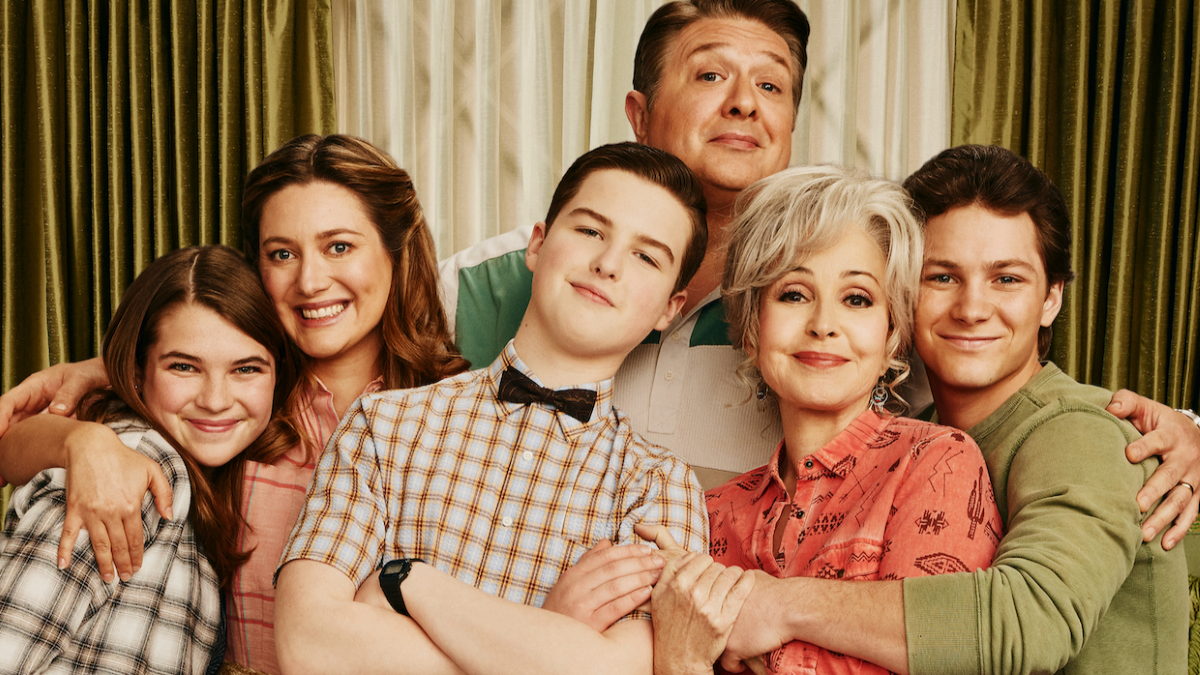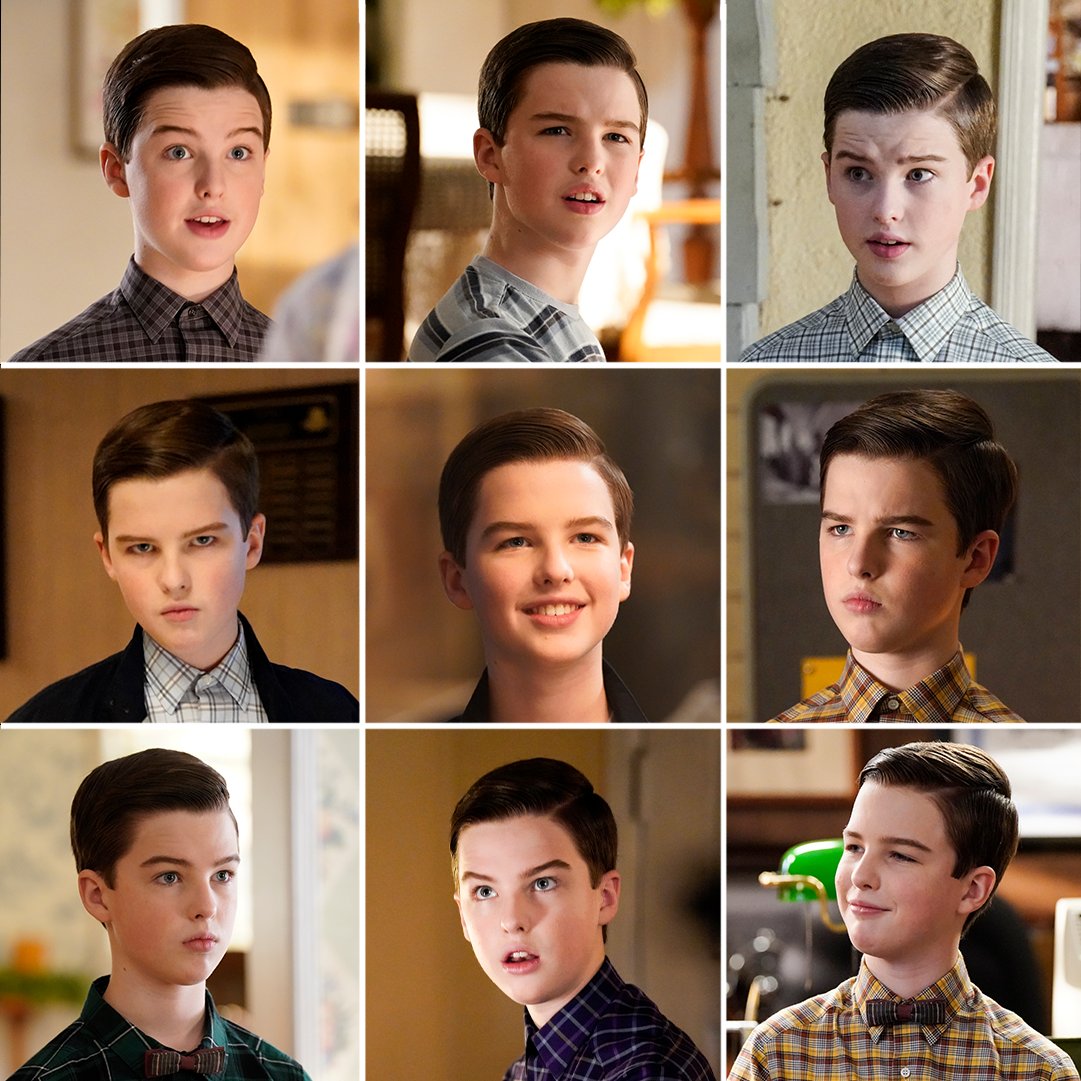Ever wondered when Young Sheldon takes place and how it fits into the grand universe of The Big Bang Theory? Well, buckle up because we're diving deep into the timeline, history, and everything you need to know about this genius prequel series. From Sheldon's quirky childhood antics in Texas to the science-filled adventures that shaped him into the adult we all know and love, Young Sheldon is more than just a sitcom—it's a journey through the mind of a prodigy.
When did Young Sheldon take place? This question has intrigued fans since the show premiered in 2017. Set in the late 1980s and early 1990s, Young Sheldon explores the formative years of Dr. Sheldon Cooper, the brilliant but socially awkward physicist from The Big Bang Theory. But there's so much more to uncover about the show's setting, its connection to the original series, and the cultural references that make it so relatable.
Whether you're a die-hard fan of the show or just curious about its origins, this article will break down everything you need to know. From the timeline and historical context to the real-life inspirations behind the characters, we've got you covered. So grab your favorite snack, and let's jump into the world of Young Sheldon!
Table of Contents
- When Did Young Sheldon Take Place?
- Biography of Sheldon Cooper
- The Show's Premier and Reception
- Historical Context of the Late '80s and Early '90s
- Key Characters and Their Roles
- Science Elements in Young Sheldon
- Cultural References and Nostalgia
- Season-by-Season Highlights
- Balancing Comedy and Drama
- The Future Direction of Young Sheldon
When Did Young Sheldon Take Place?
Alright, let's get straight to the heart of the matter: when did Young Sheldon take place? The show is set primarily in the late 1980s and early 1990s, focusing on Sheldon Cooper's life as a 9-year-old prodigy attending high school in East Texas. The timeline is crucial because it not only sets the stage for Sheldon's development but also ties directly into the broader universe of The Big Bang Theory.
Each episode typically begins with a voice-over from Jim Parsons, who plays the adult Sheldon, reflecting on his childhood experiences. This narrative device adds depth and context, allowing viewers to understand how young Sheldon's actions shaped the man he became. The show's setting in the '80s and '90s also provides a rich backdrop of cultural references, from music and movies to technological advancements, that fans love to geek out over.
Why the '80s and '90s?
The choice of the late '80s and early '90s as the setting for Young Sheldon wasn't random. It was carefully selected to align with Sheldon's age during that period, ensuring continuity with The Big Bang Theory. Plus, it gives the writers a chance to explore the unique challenges and triumphs of growing up in a simpler, less tech-driven era.
For instance, young Sheldon doesn't have access to smartphones or the internet as we know it today. Instead, he relies on books, encyclopedias, and his own incredible intellect to solve problems. This contrast between old-school learning methods and modern-day conveniences adds an extra layer of charm to the show.
Biography of Sheldon Cooper
Before we dive deeper into the timeline and setting of Young Sheldon, let's take a moment to explore the life and times of Dr. Sheldon Cooper. Below is a quick rundown of his biography, complete with some fun facts and a table summarizing his key details.
Sheldon Cooper: The Early Years
Born on February 26, 1980, in Galveston, Texas, Sheldon Lee Cooper was a child prodigy with an IQ of 187. By the age of 4, he had mastered calculus, and by 11, he had graduated from college. But his intellectual prowess came at a cost: Sheldon struggled with social interactions, a theme that would later become central to both The Big Bang Theory and Young Sheldon.
Here's a quick glance at Sheldon's biodata:
| Full Name | Sheldon Lee Cooper |
|---|---|
| Date of Birth | February 26, 1980 |
| Place of Birth | Galveston, Texas |
| Education | Rice University (graduated at age 11) |
| Profession | Theoretical Physicist |
The Show's Premier and Reception
Young Sheldon premiered on September 25, 2017, and was met with widespread acclaim from critics and fans alike. The prequel series quickly became a ratings hit, drawing in millions of viewers each week. But what made it so successful? Well, the show's ability to blend humor, heart, and intellectual curiosity struck a chord with audiences of all ages.
From the get-go, Young Sheldon didn't shy away from tackling tough topics like family dynamics, bullying, and the challenges of being different. This authenticity resonated with viewers, making the show more than just a comedy—it was a reflection of real-life struggles and triumphs.
Key Episodes That Defined the Show
Some of the standout episodes in the early seasons include:
- "Pilot": Introducing young Sheldon and his quirky family.
- "The Cooper Chronicles": Flashbacks to Sheldon's early years.
- "The Halloween Shenanigans": A hilarious take on the holiday season.
Historical Context of the Late '80s and Early '90s
To truly appreciate Young Sheldon, it's essential to understand the historical context of the late '80s and early '90s. This was a time of significant cultural and technological change, marked by the rise of personal computers, the internet, and the fall of the Berlin Wall. These events not only shaped the world but also influenced the themes explored in the show.
For example, young Sheldon often references historical events and scientific discoveries of the era, showcasing his vast knowledge and love for learning. This attention to detail adds authenticity to the show and makes it feel grounded in reality, even when the plot takes a humorous turn.
Music and Movies of the Era
No discussion of the '80s and '90s would be complete without mentioning the music and movies that defined the decade. From Michael Jackson's Thriller to the release of Jurassic Park, these cultural touchstones are sprinkled throughout Young Sheldon, creating a nostalgic experience for viewers who lived through the era.
Key Characters and Their Roles
Of course, no show would be complete without its memorable characters. Young Sheldon boasts a diverse cast of personalities, each bringing something unique to the table. Here's a quick look at some of the key players:
- Sheldon Cooper (Iain Armitage): The brilliant but socially awkward protagonist.
- Mary Cooper (Zoe Perry): Sheldon's loving but sometimes overbearing mother.
- George Cooper Sr. (Lance Barber): Sheldon's laid-back father and occasional foil.
- Missy Cooper (Raegan Revell): Sheldon's twin sister and his biggest fan.
How the Characters Evolve
One of the joys of watching Young Sheldon is seeing how the characters grow and change over time. Whether it's Mary learning to embrace her son's uniqueness or George finding new ways to connect with his family, the show does an excellent job of portraying realistic character development.
Science Elements in Young Sheldon
As a show centered around a young prodigy, science plays a significant role in Young Sheldon. From Sheldon's fascination with astrophysics to his love for Star Trek, the series incorporates scientific concepts in a way that's both educational and entertaining.
But it's not just about the science itself; it's also about how Sheldon uses his knowledge to navigate the world around him. Whether he's explaining the theory of relativity to his classmates or using logic to solve a family dispute, science is a constant companion in his journey.
Real-Life Inspirations
Many of the scientific elements in Young Sheldon are based on real-life discoveries and theories, adding an extra layer of depth to the show. The writers often consult with experts to ensure accuracy, which is a testament to their commitment to authenticity.
Cultural References and Nostalgia
Young Sheldon is a treasure trove of cultural references, from classic TV shows to iconic movies. These nods to the past not only entertain but also educate viewers about the era in which the show is set.
For instance, you'll find references to everything from The Simpsons to Back to the Future, creating a sense of nostalgia that's hard to resist. This attention to detail is one of the reasons why the show has such a dedicated fanbase.
Why Nostalgia Matters
Nostalgia is a powerful tool in storytelling, and Young Sheldon uses it to great effect. By tapping into the shared experiences of its audience, the show creates a sense of connection and belonging that keeps viewers coming back for more.
Season-by-Season Highlights
Each season of Young Sheldon brings something new to the table, whether it's a fresh storyline or the introduction of a new character. Here's a quick recap of some of the standout moments:
- Season 1: Sheldon's first day of high school and his struggle to fit in.
- Season 2: The family's trip to Houston and Sheldon's encounter with a famous physicist.
- Season 3: Sheldon's first science fair and the challenges of growing up.
What's Coming Next?
As the show continues to evolve, fans can expect even more exciting developments. From new characters to unexpected plot twists, there's always something to look forward to in the world of Young Sheldon.
Balancing Comedy and Drama
One of the strengths of Young Sheldon is its ability to balance comedy and drama seamlessly. While the show is undeniably funny, it doesn't shy away from tackling serious topics like family conflict and identity. This mix of humor and heart is what makes the series so relatable and engaging.
For example, episodes that focus on Sheldon's struggles with fitting in are often both hilarious and poignant, showcasing the show's versatility and depth.
The Future Direction of Young Sheldon
As Young Sheldon continues to thrive, fans are eager to see where the story will go next. Will we learn more about Sheldon's formative years? Or will the show explore new territory entirely? Only time will tell, but one thing is for sure: Young Sheldon isn't going anywhere anytime soon.
In conclusion, when did Young Sheldon take place? The answer lies in the late '80s and early '90s, a time of great change and discovery that shaped the man Sheldon Cooper would become. So whether you're a fan of the science, the humor, or the heart, there's something for everyone in this beloved series.
Final Thoughts
We hope this article has shed some light on the timeline and setting of Young Sheldon while providing valuable insights into its characters, themes, and cultural significance. Now it's your turn—leave a comment, share the article, or check out some of our other content. After all, the more we talk about Young Sheldon, the more we can appreciate its brilliance. Cheers!


